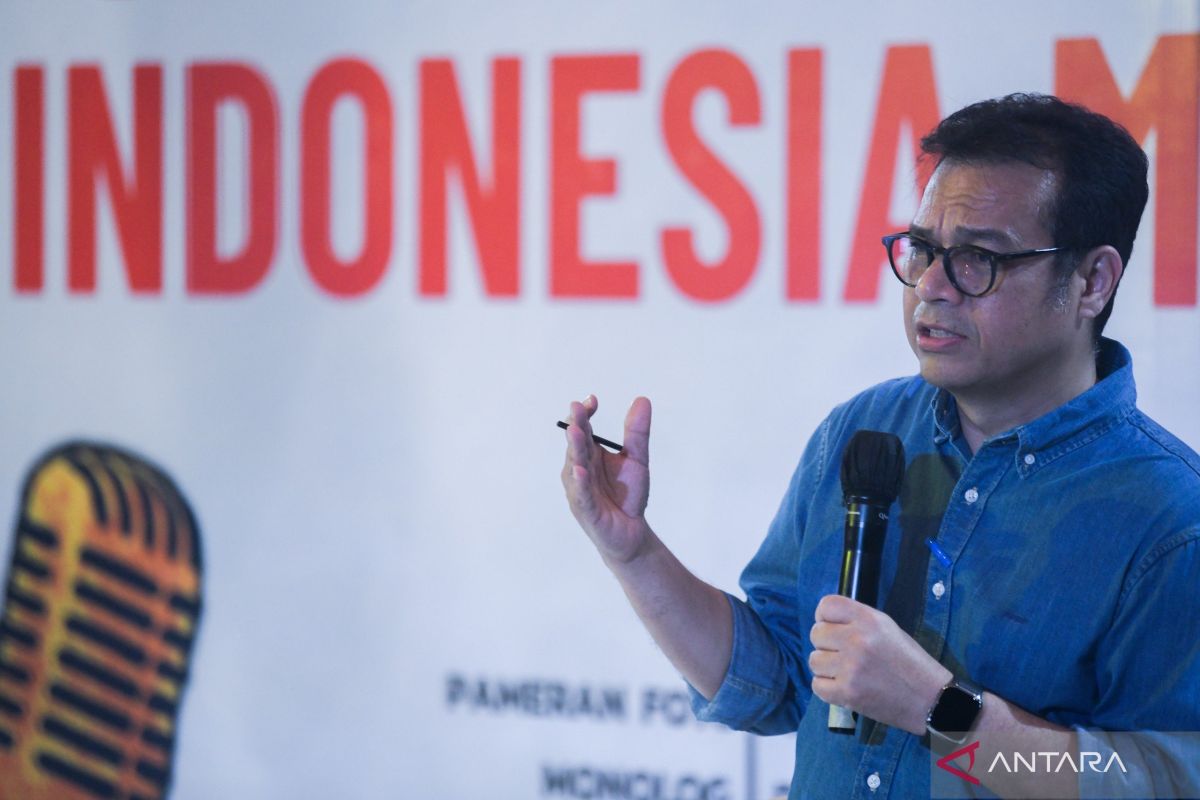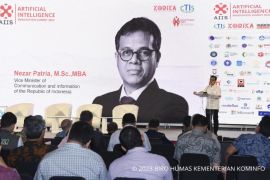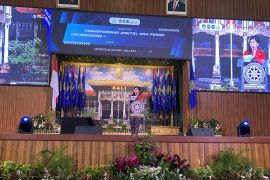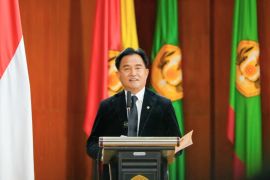“Actually, it is very clear that if we want to create one regulation and so on, we must look at the geopolitics of AI development. The Atlas of AI must be a guideline for creating AI regulations for Indonesia if we want sovereign technology,” he said here on Monday, referring to award-winning scholar Kate Crawford’s book.
To build digital sovereignty amid rapid global transformation, Indonesia must prepare a strong national ecosystem, starting from research and development (R&D), computing, regulation, to superior digital talents, he added.
Indonesia has a wealth of natural resources, such as nickel, boron, and other important minerals that are key for the development of the global AI chip and computing industry, he pointed out.
However, it currently lacks a grand design to make this wealth a part of the global AI ecosystem.
To strengthen Indonesia’s position, Patria emphasized the importance of building a strong domestic research center and computing cluster in terms of hardware, infrastructure, and data capacity.
Indonesia’s current R&D funds account for just 0.24 percent of its total GDP (gross domestic product), so the journey toward digital sovereignty, especially in the field of AI, is still progressing slowly, he noted.
“Well, without this R&D, it is rather difficult for us to develop sovereign AI—(or) AI that is our own. To build all of this, we need fairly strong computing and adequate infrastructure. These two things are still in the planning stage,” he informed.
In addition, the AI data currently in use is guided by the model created by developed countries, such as the US, so it reflects the values of Western nations.
Further, the data is biased against cultures outside America, for instance, it stereotypes certain groups, certain races, and nations.
“So that proves that there are efforts to filter and so on according to existing interests,” he said.
According to Patria, there are three main challenges to digital transformation that Indonesia must overcome quickly to become a digitally sovereign country: the digital infrastructure gap, threat of cyberattacks, and digital talent deficit.
The demand for digital talents in Indonesia is projected to cross 12 million by 2030. However, their number is likely to fall short of this figure by 2.7 million. This gap could hinder the entire transformation process.
Therefore, the development of digital talents is very important for achieving digital sovereignty, he emphasized. He further said he believes that with qualified human resources, limitations in infrastructure can be overcome through innovations in digital technology.
“Once again, in my opinion, digital talent is the Number 1 project, infrastructure may be limited, but if the person is creative, they can overcome those limitations,” Patria explained.
“China has proven that with limitations, and so has India with good talents, they can be more advanced in adopting this digital technology,” he added.
He said that digital transformation should not be seen sectorally, but as an interrelated ecosystem linking security, economy, and education that protects local values.
Related news: Minister asks collegians to drive digitization with AI mastery
Related news: Indonesian govt, CSOs to develop tool to detect deepfakes
Related news: Indonesia, South Korea strengthen AI ties with focus on ethics, talent
Translator: Fitra Ashari, Yashinta Difa
Editor: Azis Kurmala
Copyright © ANTARA 2025












